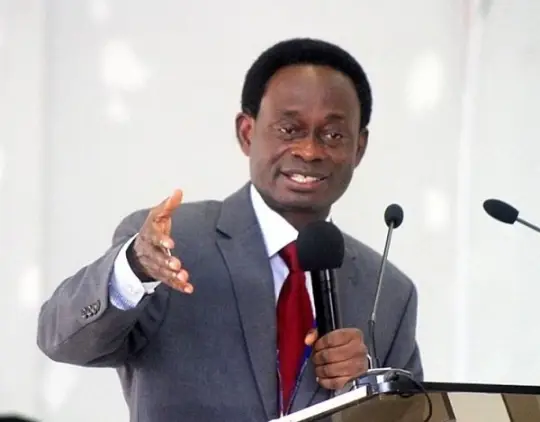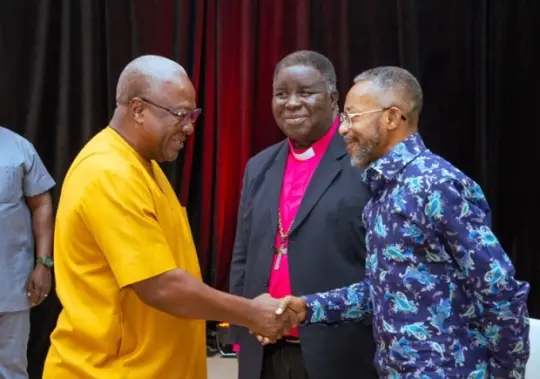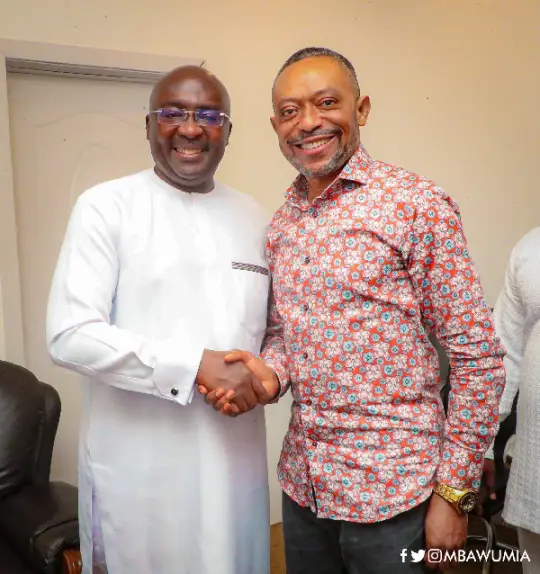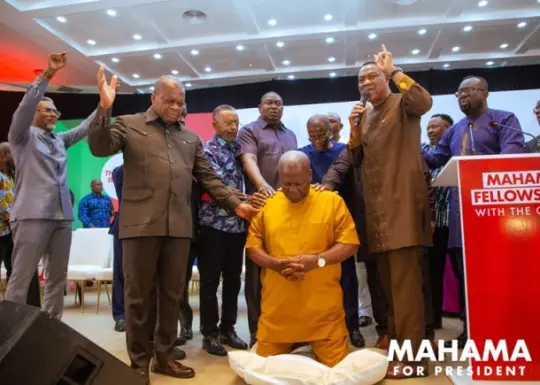
Apostle Dr. Opoku Onyinah, a former Chairman of the Church of Pentecost, has called on Ghanaian pastors to desist from prophesying the outcome of elections in the country publicly.
According to him, such prophecies create confusion within the Christian community, as many pastors tend to make conflicting predictions about election results.
" The National Peace Council of Ghana recently organised a forum in Accra for prophets, aimed at helping them in handling their prophetic messages responsibly to avoid inciting unrest in the upcoming election.
" I had the privilege of serving as the facilitator. During our discussions, one prophet raised the concern that politicians in Ghana often show little respect for pastors and prophets, despite seeking their support during election years.
" In response, I pointed out that, in many cases, it is we, the pastors and prophets, who may contribute to this lack of respect. For example, it is not uncommon for one pastor to prophesy that a candidate from one party will win, while another pastor claims the victory of an opposing candidate.
" This kind of contradiction brings disrepute to the name of God and creates confusion. Moreover, such prophecies have the potential to incite unrest in the country. Therefore, it is appropriate to keep these prophecies private, rather than making them public and fuelling instability, " he said.
In a Facebook post on October 8, 2024, Apostle Onyinah stated, " Unfortunately, not all prophets attended the meeting, and these problematic prophecies have become all too common in our country.
" Currently, we see two major streams of prophecy: one predicting that the NPP flagbearer will win, and the other foretelling victory for the NDC flagbearer.
" When politicians hear prophecies in their favour, they often align themselves with the prophets, celebrating favourable predictions. It is natural for people to gravitate toward good news about themselves. Even in the Bible, we see examples of individuals who acted to fulfill prophecies that favoured them, such as Jehu and Hazael (e. g. 2 Kings 8– 9).
" Conversely, those who received unfavourable messages, like Zechariah, Micaiah, and Jeremiah, were sometimes mistreated or killed (e. g. 1 Kings 22: 1– 40; Jeremiah 37: 9– 20; 2 Chronicles 24: 20– 22).

" But, is this trend helpful? Does it promote national development, or are we simply causing harm? When two divergent prophecies are given, one is bound to fail, and in the current climate, this creates division and instability. What will happen to our nation after the election if this continues? Will we not face confusion and disgrace? Why should the men of God place the nation in such a precarious position? . "
Dr. Onyinah called on Ghanaians to vote based on their conviction of who can best lead the country rather than relying on prophetic messages.
" While damage has already been done, I believe it is not beyond remedy. I appeal to my fellow pastors and prophets: let us refrain from delivering these divisive public prophecies.
" I also urge political flagbearers and politicians not to cling to these predictions but to continue their campaigns with integrity, trusting that God' s will for their lives will unfold in his time.
" Finally, I encourage all Ghanaians not to rely on prophecies when casting their votes. Instead, vote for the candidate you believe can lead Ghana effectively in these times.
" May the Lord bless our homeland Ghana! " he added.

Meanwhile, prominent radio personality Afia Pokua, popularly known as Vim Lady has weighed in on the implications of Mahama' s actions with the clergy as the countdown to Ghana' s December 7 election intensifies
Former President John Dramani Mahama recently turned his focus toward the Christian community, making headlines with his outreach efforts. His decision to engage with influential Pastors has sparked a lively debate, especially following a meeting that some perceive as a tactical move to bolster his support among Christian voters.
During a broadcast on Okay Fm monitored by Scooper, Vim Lady expressed skepticism about his decision to include pastor Owusu Bempah in his strategy, raising concerns that this could alienate other key allies within the religious community. Vim Lady' s commentary underscores the intricate dance of loyalty, strategy, and influence that defines Ghanaian politics, particularly in the context of an impending election.







No comments yet
Be the first to share your thoughts!